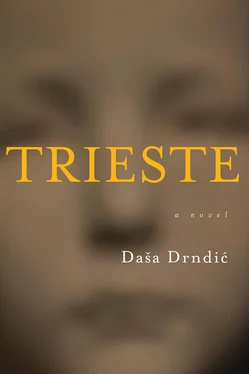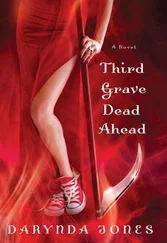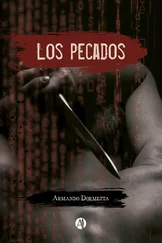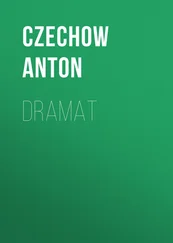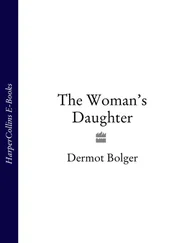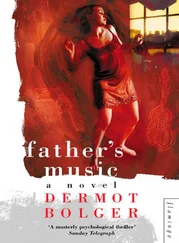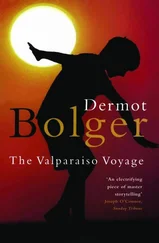No-one comes to visit Marisa. None of her family is left in Gorizia. Bruno, Letizia, Ada and Carlo leave on a refugee march towards southern Italy. Marisa dies in early 1918. She is buried in a common grave for the nameless at the cemetery in Ljubljana.
We left, Bruno says. We had to go to survive. Two hundred and twenty-five people died in the first seven months, he says.
Carlo is given a bar of dark chocolate, because he is small, nine. The others are given a half-loaf of bread. The column of refugees is a long one. They all walk single file. It rains for days. The roads are mud-soaked. Their legs ache. Their feet blister. In front of Bruno walks a man with a thick bandage around his neck. A plaster collar, rigid and brown with clotted blood. Bruno asks him whether he is wounded, and the man wheezes and gesticulates. Bruno cannot understand what the injured man is saying. He asks again. The man wheezes terribly. A bullet pierced his voice box, says a woman in front of the wheezing man who is walking. There are ten badly wounded people in the column, they are on stretchers. They aren’t moving. They do not move their heads. Maybe they are dead.
The column is setting off in the direction of Latisana, Udine, Padua, someone says. Bruno has no idea where. He is not familiar with Italy.
In Palmanova the streets teem with refugees. There is a great crush. They are all given cups of coffee. A woman lies, unconscious, in a wheelbarrow. The wheelbarrow is pushed by a boy. The wheelbarrow rocks, tips. That woman will fall out, Letizia says. She’ll fall out and people will step on her, Ada says. The boy is wearing a brown, short-sleeved shirt. The rain pours down. Wo ist Mama? asks Carlo.
There is a huge cauldron of hot tea on the square. The cauldron sits on the square like a church, like a chapel. Around it gather muddy refugees in muddy tatters, silent. A German plane dips out of a grey cloud and hovers halfway up the sky. The plane sprays machine-gun fire through the crowd on the square. The soldiers and nurses keep doling out tea. A woman in a garden to the left of the square drops, and with her drops the child she is holding by the hand. The woman and child tumble among the wilting sunflowers, as if they are from Latisana, Latisana is full of sunflowers. The woman and child disappear behind the fence as if they are puppets in a puppet theatre, out of sight. The plane lands on the square, shot down by an Italian machine gun. The refugees step back from the tea cauldron. The pilot has been shot, too. He is a German pilot. Both his legs have bloomed like a bouquet of crimson roses whose petals are dropping in bunches, softly. A French soldier comes running over, shoves his face into the German pilot’s face and howls Vous êtes fou! The French soldier saw the woman and child fall among the sunflowers, which is why he is shouting. The Italians pull the pilot from the cockpit. It is a small plane, a three-seater, so the cockpit is cramped. While the Italian soldiers pull out the German pilot with his crushed legs, the French soldier comes even closer and shoots the German pilot in the forehead. The women working for the Red Cross stop doling out the tea. Empty tea cups swing from slender hands in the air like silver balls on a Christmas tree. New refugees stream into the city. The city is crowded with refugees who will move on the next day. There are carts pulled by oxen, there are donkey carts, people jouncing in them, eyes open, apparently alive. Others cling to their bundles as if they were newborn babes. The column leaves the town. The battlefields are not far off. There is shooting. An old, grey-haired village woman walks behind Bruno, straight and tall like a white flag on a mast, wrapped in serenity and severity. She trudges alone through mud that is getting deeper and thicker. This is not going to end well , she says. There are no more wounded in the column. Someone has unloaded them somewhere, at a hospital maybe. The rain comes pouring down. It is November 1917.
The road is blocked. The column crawls along for another three kilometres, then turns into a field all shiny with dampness and the wet. Someone says: This is a strategic point . Now the rain pelts. The field becomes a swamp. Bruno coughs. Carlo coughs. The mud is slippery between my toes, Ada says. There is no shelter, only the faraway sky. A doctor comes running out with his arms raised high, as if preparing to dive into the sea. Non ho i medicinali per i feriti! Trovatemi i medicinali! he shouts. Everyone is silent. The whole column is silent. When will the Germans come? asks Bruno. Wann werden die Deutschen kommen? No-one answers. Then an old man says: Das da ist mein Haus. Wenn ich weggehe, werde ich alles verlieren. Aber bleiben kann ich nicht.. . He gestures with an open hand, as if onstage, as if in some dramatic scene, he waves at a little grey hut over which the dark rainwater comes down so that the hut resembles a convict in a striped suit. The old man sobs.
Night falls. The column still has ten kilometres to Latisana. In Latisana the Baar family board a refugee train for Bologna, which takes them southward. Meanwhile, young men from the newly defunct Monarchy, children who have gone to fight for their own liberty, languish in prisoner-of-war camps all over Europe.
At the camp the Baar family eat cold mutton goulash, which puts them off mutton for the rest of their lives. The goulash is covered in a layer of shiny, whitish fat, a miniature skating rink for the camp fleas and lice, on which Ada traces out with her finger the Italian words she is learning, until the cold, fatty surface cracks and the dark-red liquid from underneath spurts up. Ada dreams of Marisa: ada goes to the cemetery, she is happy she’ll see mama marisa, she tells the flower seller, make me a big bouquet with lots of branches. the flower seller asks, why the branches? i’ll leave them on a tree, ada says. mama comes down the hill over gorizia and shouts, wait for me, ada, wait for me!
Ada is no longer a child. When she gets back to Gorizia she will be eighteen.
The Austrian and German camps scattered around the former Monarchy are also full of refugees and prisoners of war. The Italian boys mostly dream of food, just as all those who have lost their liberty dream of food. Some sleep on straw mattresses, some have sheets. They send home testimonies, little pieces of the puzzle that make up the panorama of history, edge pieces, corner pieces, without which the picture can never be framed. But History has no interest in frames. History wants to remain open. So that it can be filled in and multiply. Emanuele from Sigmundsherberg writes asking for chocolate, warm socks and tobacco, he complains of the frozen bread which cannot be sliced at fifteen degrees below zero. Gerolamo writes that they steal chickens, since all they are given is rice. From a camp in Celle, Antonio requests Maggi bouillon cubes, butter, thread, needles, buttons, a mirror and a comb. Sandro wants ten packs of cigarettes and two packages of Maryland tobacco, ricotta cheese and eggs, a kilo of white flour, three kilos of ravioli and twenty-five lire. In the Ostffyasszonyfa camp, Guido would like basil pesto, while Nicolà asks for black beans, figs and dried pears with a few walnuts. Antonio urgently requires a kilo of butter, tomato juice, twenty tubes of soup concentrate, grated cheese, two kilos of rigatoni, five cans of fruit salad, condensed milk, he wants cookies with hazelnuts, fresh sheep’s cheese and a kilo of mostazzola. Aside from the jumpers Ruggero asks for, and the woollen socks, gloves, mufflers, a jacket and a cap (no smaller than a size 59), he craves dried mutton, while Luca from the lunatic asylum in Cogoleto writes out his existential hunger, his physiological and philosophical enlightenment, in broad strokes, asking for money, two pigs and a goat (for the milk), “because I am seriously ill”. So food, the compelling huckster, illusion-maker of belonging, of being special, of survival, of return, of redemption, spreads out a bed in the tomb of nostalgia for our hunger, our folly, as cure and as a way out. We obediently make ourselves comfortable in that endlessly terrifying space of existence, seeking what we already have.
Читать дальше
